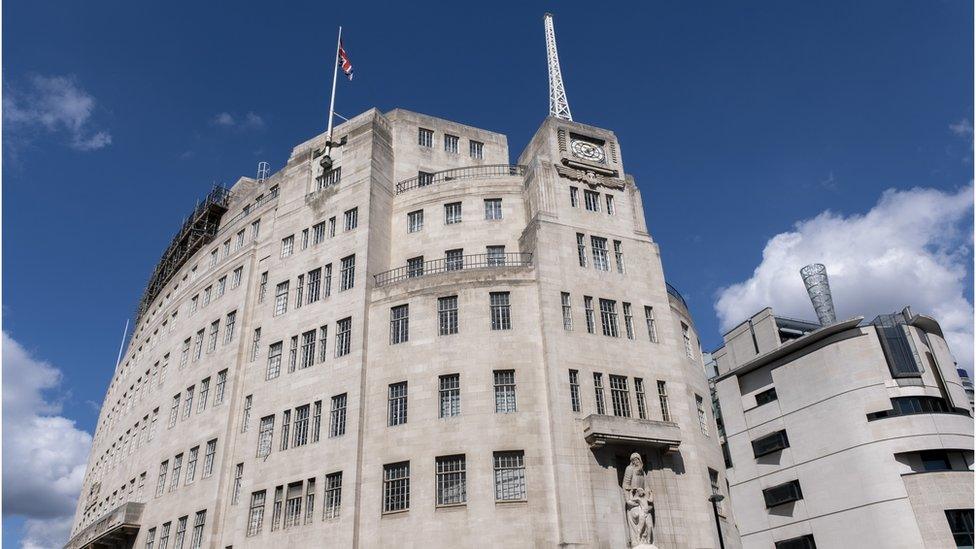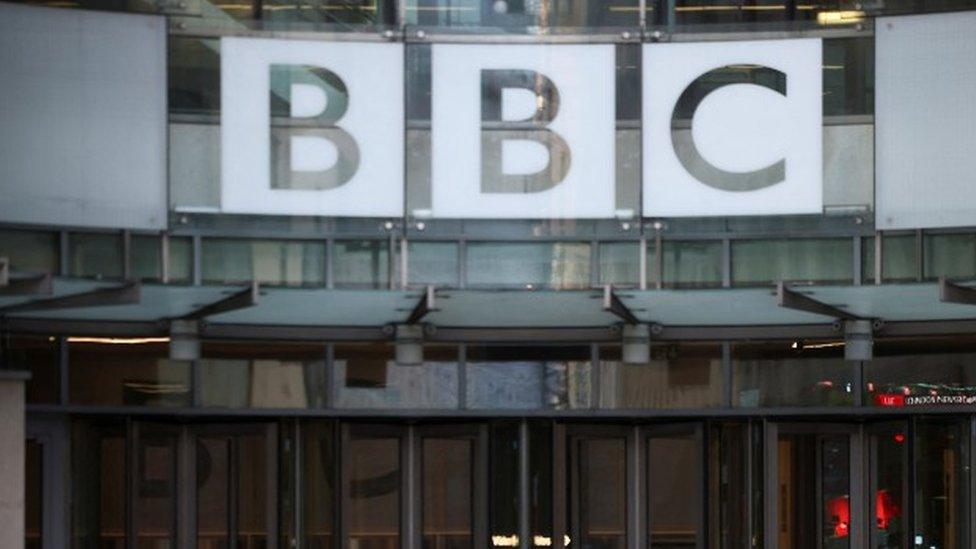BBC must do more to serve lower income audiences, says Ofcom
- Published

The BBC's New Broadcasting House HQ in London
The BBC needs to do more to serve audiences on lower incomes, according to broadcasting watchdog Ofcom.
In its annual report, published on Wednesday, Ofcom said people in lower socio-economic groups are less engaged and less satisfied with the BBC.
It will launch an "in-depth review" next year into how the corporation connects with these audiences.
However, Ofcom said the BBC had fulfilled its remit, reaching a wide proportion of the UK population.
Eight out of 10 people aged 16 and over in the UK consume some BBC content each week.
Ofcom noted how during its transition to becoming a "digital first" organisation, the BBC faced many challenges.
iPlayer changes
"These include: protecting local audiences as it seeks to make changes to its news and current affairs; improving its complaints handling; and being more transparent about changes it intends to make to its licence-fee funded public services," it noted.
The corporation recently announced that BBC local radio stations will have a significant number of programmes cut under new plans.
All 39 networks in England will keep their current schedule from 6am to 2pm, but after that shows will be shared.
Ofcom also said it had accepted a request from the BBC to increase its catalogue of older content and series on its iPlayer in order to give "greater choice and better value for licence-fee payers".
In response, a BBC spokeswoman noted how the watchdog "recognises our investment in distinctive UK content" and "how we bring audiences together for major national moments", as well as "the significance of our trusted, impartial news, which means we're delivering on our remit and delivering value for audiences".
She added: "While the BBC is the most used media brand for lower socio-economic groups, we know we have further to go both on and off screen so we are commissioning ever more varied content that reflects UK communities and we've set a new staff target, for 25% of staff to come from lower socio-economic backgrounds to ensure we're serving all audiences."

Ofcom's key findings
Its assessment this year has found that the BBC has continued to deliver its remit
However, the BBC continues to struggle to deliver for all audiences
The BBC has begun to take action to improve how it handles complaints and audience perceptions of impartiality
It will scrutinise the BBC's modernisation plans as they develop to ensure that it is delivering for audiences across the UK
It is consulting on a number of changes to the BBC's competition regulation and gave it the go-ahead to increase the catalogue of older content on BBC iPlayer
The report arrives a day after the BBC announced changes to its complaints process, vowing to make it easier and more transparent.
The corporation said on Tuesday that in order to "maintain audience trust" it would make its complaints website easier to find and use.
- Published29 November 2022
